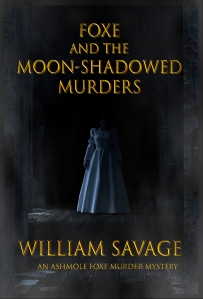 The Elopement
The Elopement
John Collet, 1764
It’s good to see that even our georgian ancestors were not above getting pissed and doing stupid things at christmas parties.
The following piece was published in The Norwich Mercury of January 14th, 1727.
Sherborn, Jan. 9. A Company of merry People getting together this Christmas in our Neighbourhood, amongst other Diversions, they must needs play a Game at Matrimony, and accordingly suffered themselves to be married to one another; Tho’ this was but in jest, and defin’d as a meer Frolick, one of the young Ladies of a good Fortune was the next day demanded by her Husband, and being informed that the marriage was good in Law, the same was consumated. The rest of the married Folks, we hear, have made their Escapes, some for fear of being taken by their Wives, and some to prevent falling into the Hands of their Husbands.
It’s true that precisely what counted as a valid marriage was not at all clear before Lord Hardwicke’s Marriage Act of 1753. By stipulating in detail what was required to make a marriage legal and binding, it effectively outlawed all other notions of what might constitute a marriage.
Were they married?
Before the act, the only stipulations were those contained in the canon law of the Church of England. However, the stages it prescribed were seen as ideals rather that firm requirements. It wasn’t essential to be married in church, or to have banns read, or even obtain a licence. It was agreed a clergyman of the established church was necessary, but there were plenty of those about, not all of whom were attached to parishes or even very diligent about their duties. So-called ‘Fleet weddings’ were carried out by ordained clergymen serving time in the Fleet prison and were usually accepted as valid, if entirely irregular.
By canon law, a binding union arose from an exchange of vows, made freely, between a man and a woman. Usually this was given in the present tense, i.e. as something happening right away. However, vows could also be expressed in the future tense, as a statement of intentions. This was thought equally binding, much like a commercial contract; doubly so if followed by sexual intercourse. Hence the legal actions for ‘breach of contract’ between engaged couples much valued by writers of romantic novels and comic operas.
Breach of Promise?
A jilted woman had a right to legal redress precisely because an engagement affected her reputation almost as much as an admission of premarital sex would have. The 18th and 19th centuries were far from being a time of stiff manners and chastity. Many, perhaps even most, engaged couples happily took their engagement as the starting gun on sexual activity together. You only need to do a little genealogical research, and reckon the periods between wedding dates and the birth of the first child, to discover how many of your own ancestors were conceived out of wedlock.
Consummation
Consummation was seen as the final ‘seal’ on the couple’s shared vows. Without it, the process was incomplete and could be cancelled. The ‘married couples’ in the article who were hiding from one another were probably quite safe, so long as they refrained from sex together. Even if their pretend marriages had turned out to be legal, they could still be annulled by reason of non-consummation. The “young lady of good Fortune” mentioned in the article thus greatly improved the chances of her joke marriage being accepted as legal by agreeing to join her ‘husband’ in having sex the next day.
You can make up your own minds whether her action was caused by gullibility, pressure from the man, or her own willingness to use the cover of even a doubtfully legal marriage to do what she wanted to do anyway. The others seem not to have been so eager to consummate their weddings, though it’s interesting to note the writer implies one party in each case was a good deal more interested in the marriage being legal than the other!
I wonder what the ‘other Diversions’ at that party were?



My guess is that the “good Fortune” of the lady in question had a lot to do with her joke bridegroom’s eagerness to consummate the deal. I hope she at least liked the guy and didn’t get stuck in a horrible marriage.
I was quite intrigued a couple of years ago when I learned about historical marriage customs – the early medieval style, pre-12th-century, was even more casual than pre-Hardwicke. They didn’t even need a clergyman then. I loved it, because I’d made up a very similar custom for my fantasy novel and then found out it had really happened! (https://amovitam.ca/2015/07/22/medieval-marriage-or-i-thought-i-just-made-that-up/)
LikeLiked by 1 person
Of course the laws on nullification of a marriage on the grounds of non-consumation, along with a number of other reasons, persist in the UK to this day.
LikeLike
There were no laws of annulment for non-consummation. The annulment was for inability to consummate. I have several books of both canon and secular law on the matter of matrimony. However, one of the best sources is Rebecca Probert’s Marriage Law and Practice in the 18th century– mostly pre-1754. While one was considered married by exchange of vows in the present and sexual intercourse, a woman wasn’t entitled to her dower or rights as a widow and the man wasn’t entitled to the rights of property of a husband without exchanging vows in front of an ordained clergyman. It was the clandestine nature of many of the fleet weddings and the ambiguities of betrothals that led to complications and the Hardwicke act. In one sense the people were half married– not supposed to marry anyone else but not entitled to all the benefits of marriage and legitimacy of children without the exchange of vows in front of a clergyman.
LikeLiked by 3 people
Thanks for giving such a clear explanation.
LikeLike